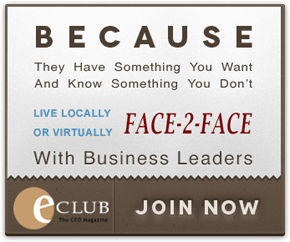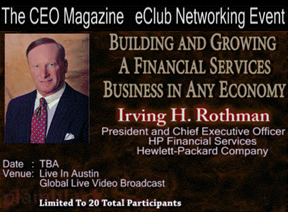You are here
- Guest Blogger |
- Self Governance |
- Wed, 07/30/2014 - 23:11

Dr. Patricia Thompson, Author, “The Consummate Leader
When the buck stops with you, it can be difficult to separate yourself from work. Being on the receiving end of pressure from shareholders, the sense of responsibility to do right by those who report to you, and the ultimate accountability that comes with being at the helm of an organization, can sometimes feel like a burden. Add to that the ubiquitous smart phone making one accessible around the clock, and one can understand how difficult it can be for CEOs to “unplug” and take full advantage of down-time.
As a result, many of the chief executives I consult with tend to overwork. And, many of these same people are conflicted about this choice. Although they would like more time to spend on personal endeavors, given their workloads and all the demands being placed upon them, they simply don’t see how they can fulfill all their obligations and solve all the many problems with which they are faced, without working round the clock.
They couldn’t have it any more wrong.
The truth is, when you are burning the candle at both ends for extended periods of time, it tends to catch up with you in terms of stress. And, when you are under stress, you become less effective in a variety of domains.
Interpersonally, you often become “more” of who you are. Are you hard-driving with a high sense of urgency? Under stress, this often turns into being overly impatient. Are you introverted and serious? Under stress, you may be perceived by others as more withdrawn and unapproachable. Are you an expressive person for whom “what you see is what you get?” The stressed version of this can often be short at best, and perhaps even abrasive in the worst case scenario. None of these are ideal for the person in charge who is supposed to be setting the tone for the company.
Ironically, overworking also makes you less effective at getting things done. Research shows that when you are feeling stressed, you are less effective at maintaining a big picture perspective, solving problems, making decisions, and being creative. I’m sure many of us have had the experience of trying to grind through getting something done when we were exhausted, with sub-optimal results. Not only does completing the work take us much longer than it would have if we were in a better frame of mind, it also is of lower quality.
So, what is a busy CEO with a lot on his or her plate to do?
- Recognize the Disadvantages Associated with Overworking - The first step in addressing the tendency to overwork is to recognize the negatives associated it. If you have convinced yourself that working around the clock is a necessity that results in more productivity, acknowledge that the research simply doesn’t support this belief. Furthermore, when you are setting the example that overwork is expected, know that your employees are also internalizing this expectation, and in turn, this may negatively affect their morale and/or productivity.
- Make Sure You Are Delegating Appropriately - Take stock of how you are spending your time. Are you consistently making the highest and best use of your time? If not, make sure you are taking full advantage of the resources around you through delegation. If you feel you cannot delegate, ask yourself why. Do you have too much of a need for control? Do your people need more development? Do you have the right people in your organization? If you can’t trust the people who report to you to produce high quality work, that should alert you that something needs to change.
- Give Yourself Permission to Get Away - While it might feel nice to be needed, recognize that you are at your best when you are balanced and taking care of yourself as a whole person. For example, research has shown that exercising is associated with increased cognitive function and enhanced mood. Relaxation is linked to creativity - brain research has indicated that flashes of insight are often preceded by alpha waves (which are signs that the brain is in a relaxed state). Chronic sleep deprivation has been linked to shrinkage of the temporal lobe (the portion of the brain responsible for memory). The bottom line? Overwork catches up with you, and ultimately, makes you less effective.
The moral of the story: Cut yourself some slack, take some time to relax, get physical, laugh, engage in hobbies, and have fun. You will be better for it!
About the Author
 Dr. Patricia Thompson is a corporate psychologist, speaker, and author of “The Consummate Leader: a Holistic Guide to Inspiring Growth in Others…and in Yourself.” Since 2004, she has been a management consultant working with senior leaders in organizations, assisting them in achieving greater work outcomes by drawing on the science of psychology. Visit her website at www.patricia-thompson.com or follow her on twitter @Patricia_Atl.
Dr. Patricia Thompson is a corporate psychologist, speaker, and author of “The Consummate Leader: a Holistic Guide to Inspiring Growth in Others…and in Yourself.” Since 2004, she has been a management consultant working with senior leaders in organizations, assisting them in achieving greater work outcomes by drawing on the science of psychology. Visit her website at www.patricia-thompson.com or follow her on twitter @Patricia_Atl.
Follow The Blog
Blog Categories
- Business Ops. (45)
- Editors (3)
- Entrepreneurship (196)
- Finance (25)
- Leadership (529)
Blog Authors
- Guest Blogger (835)
- Cynthia Kay (92)
- Linda Henman (78)
- Dianna Booher (46)
- Craig Ross (31)













